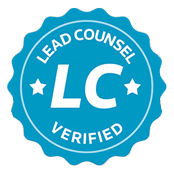Suffering a leg amputation due to a car accident is a traumatic and life-changing event. Not only are you dealing with the physical effects of losing a limb, but also the emotional and psychological impacts. Coping after this type of accident requires time, patience, support, and self-care. Here are some tips for moving forward after a leg amputation resulting from a car accident.
Seek Support
Don’t try to cope alone. Reach out to loved ones, join a support group, and consider counseling. Connecting with others who understand what you’re going through can provide validation, advice, and hope. A therapist can help you process emotions and trauma related to the accident and amputation. Your medical team likely has recommendations for peer support resources. Taking advantage of support early on sets the stage for better coping down the road.
Focus on Healing
In the initial weeks and months after the amputation, physical healing should be the priority. Follow doctor’s orders carefully, including instructions for wound care, bandaging, and physical therapy. Proper rest and nutrition will aid the healing process. Manage pain and discomfort through medication as advised. Avoid trying to rush mobility before you are ready. Patience and listening to your body is key. Healing both physically and emotionally takes time after this trauma.
Embrace Mobility Aids
Mobility aids like wheelchairs, crutches, or prosthetic legs can allow you to regain independence. Work closely with your medical team to explore appropriate options for your needs and lifestyle. Using aids takes practice but can give you freedom of movement. Customize your aids with comfortable hand grips, pads, or accessories. Expect an adjustment period as you get used to new mobility equipment. Be patient with yourself as you build strength and skills.
Modify Your Home
To navigate daily living after an amputation, assess your home environment. Install handrails by stairs or in showers. Use chair lifts if needed. Ensure adequate lighting and clutter-free pathways. Place items you use often within easy reach. A bedside commode and shower seat may help. Adjusting your living space reduces risk of falls and makes independently completing tasks easier. Don’t hesitate to also modify vehicles with hand controls or other adaptive devices.
Set Small Goals
Establish manageable, realistic goals for your recovery. Define what you want to accomplish each day or week, like standing unassisted, walking a certain distance with crutches, or sitting comfortably in a wheelchair. Recognize the small wins and don’t get discouraged by temporary setbacks. Celebrate each milestone, no matter how minor it may seem. Small goals mark your progress and keep you feeling motivated.
Practice Self-Care
Make sure to care for your whole self – body, mind and spirit. Eat nutritious meals, stay hydrated, and get adequate rest. Make time for relaxing activities you enjoy, like reading or listening to music. Express your feelings through journaling, art therapy or another outlet. Say no if demands get overwhelming. Protect your energy by setting boundaries and limits. Listen to what your mind and body need right now to heal. Don’t neglect self-care.
Connect with Others Like You
One of the most powerful ways to cope is talking with fellow amputees. Those who have been through similar experiences can offer peer support. Ask your doctor about any amputee support groups or mentoring programs in your area. If in-person meetings aren’t feasible, look for online communities. Reading about others’ recovery journeys can also provide insight and inspiration. You are not alone.
Consider Your New Perspective
This injury may change your view of yourself and the world. Reflect on how this experience can bring new understanding or purpose to your life. Perhaps you will advocate for disability rights. Maybe you will inspire others facing adversity. Your character and resilience can be sources of growth. Find meaning in moving forward or helping others. Adjusting perspective can aid the healing process.
Remain Hopeful
It’s normal to feel depressed, angry, or fearful about life after limb loss. But try to stay hopeful. With time, care, and support, most amputees adapt successfully. They find joy and freedom again. Focus on the possibilities ahead, not just limitations. Each person’s road to recovery is unique. Believe in your ability to cope and enjoy life again. You have the strength to do hard things.
Though the road forward seems daunting, you can build a good life after a car accident leg amputation. Give yourself compassion and grace. Take it one day at a time, embracing both the good moments and tough ones. With resilience, community, and hope, moving beyond this trauma is possible.
If the car accident wasn’t your fault, be sure to speak to us at Payam LA about securing compensation for your injury. You can visit our offices at the following locations:
- Beverly Hills – 8383 Wilshire Blvd, Suite 830, Beverly Hills, CA 90211
- Los Angeles – 212 East Pico Blvd, Suite #4, Los Angeles, CA 90015
- Tulare – 100 E. Cross, Suite #122, Tulare, CA 93274
- Hanford – 13400 Hanford Armona Rd, Suite #B
Call now for a free consultation on (877) 729-2652 or (323) 782-9927.














